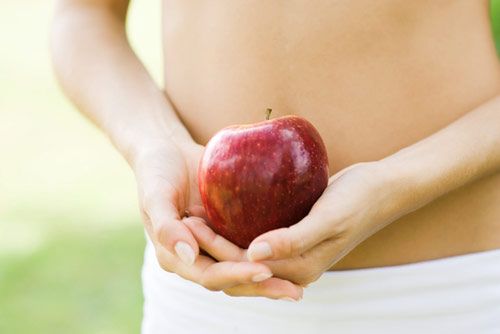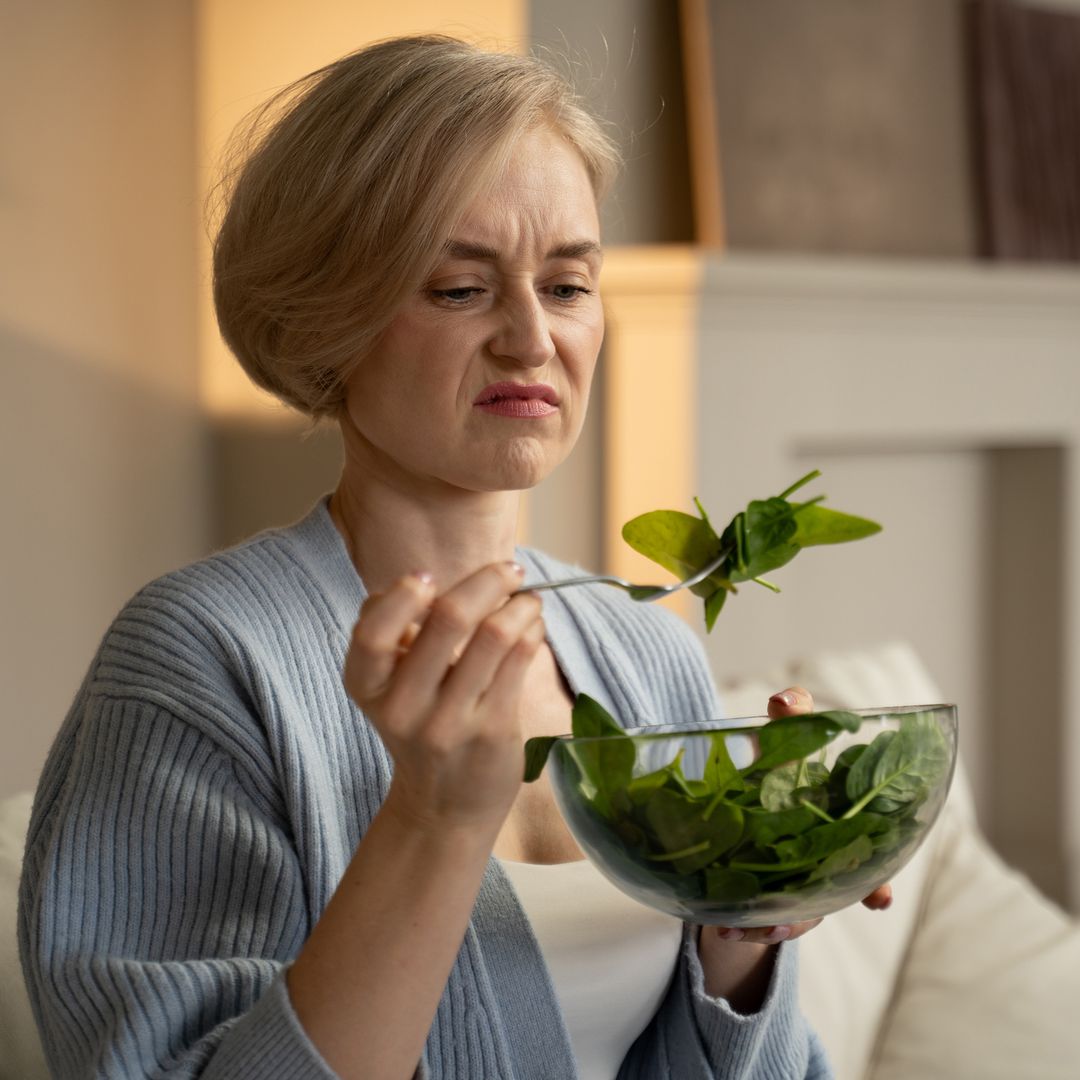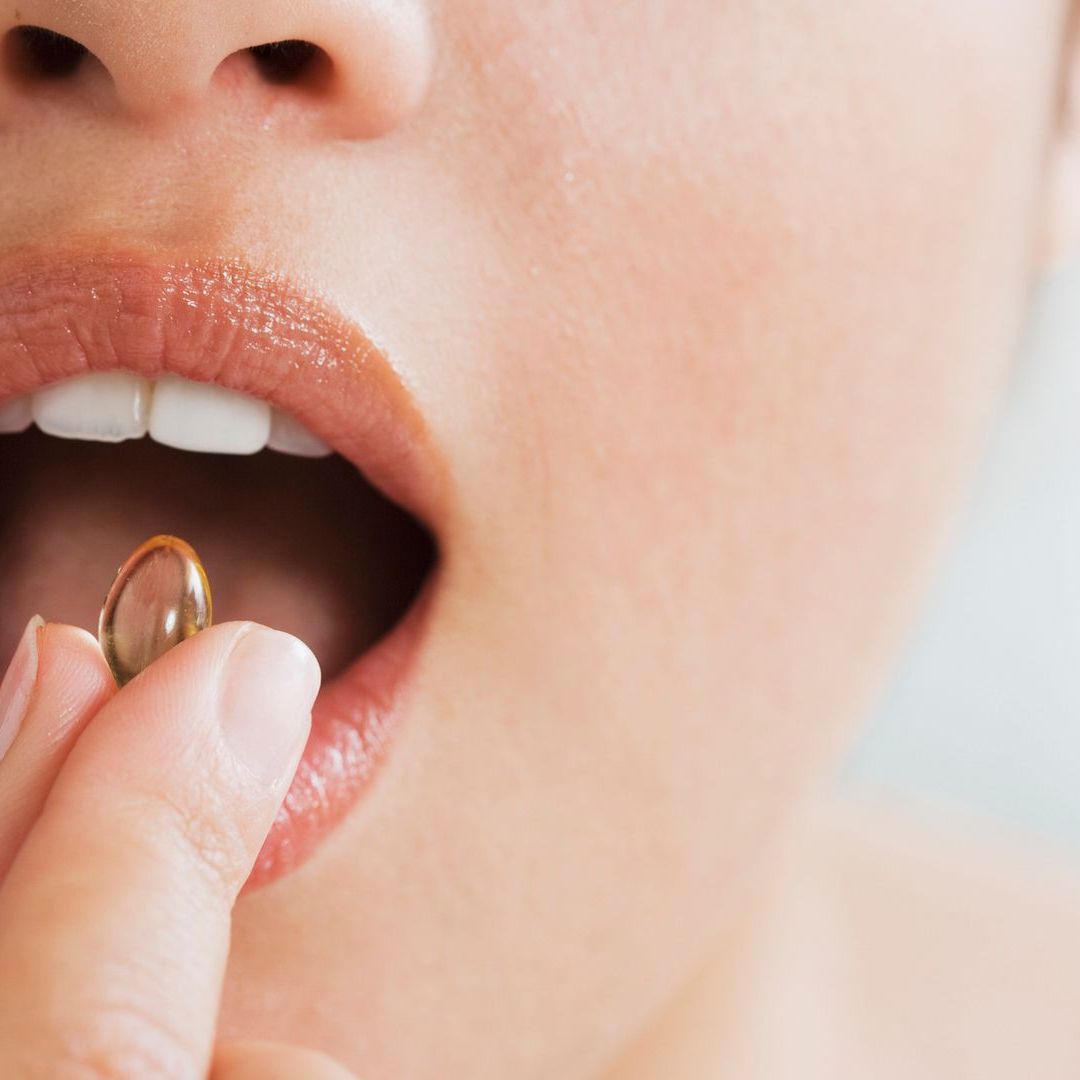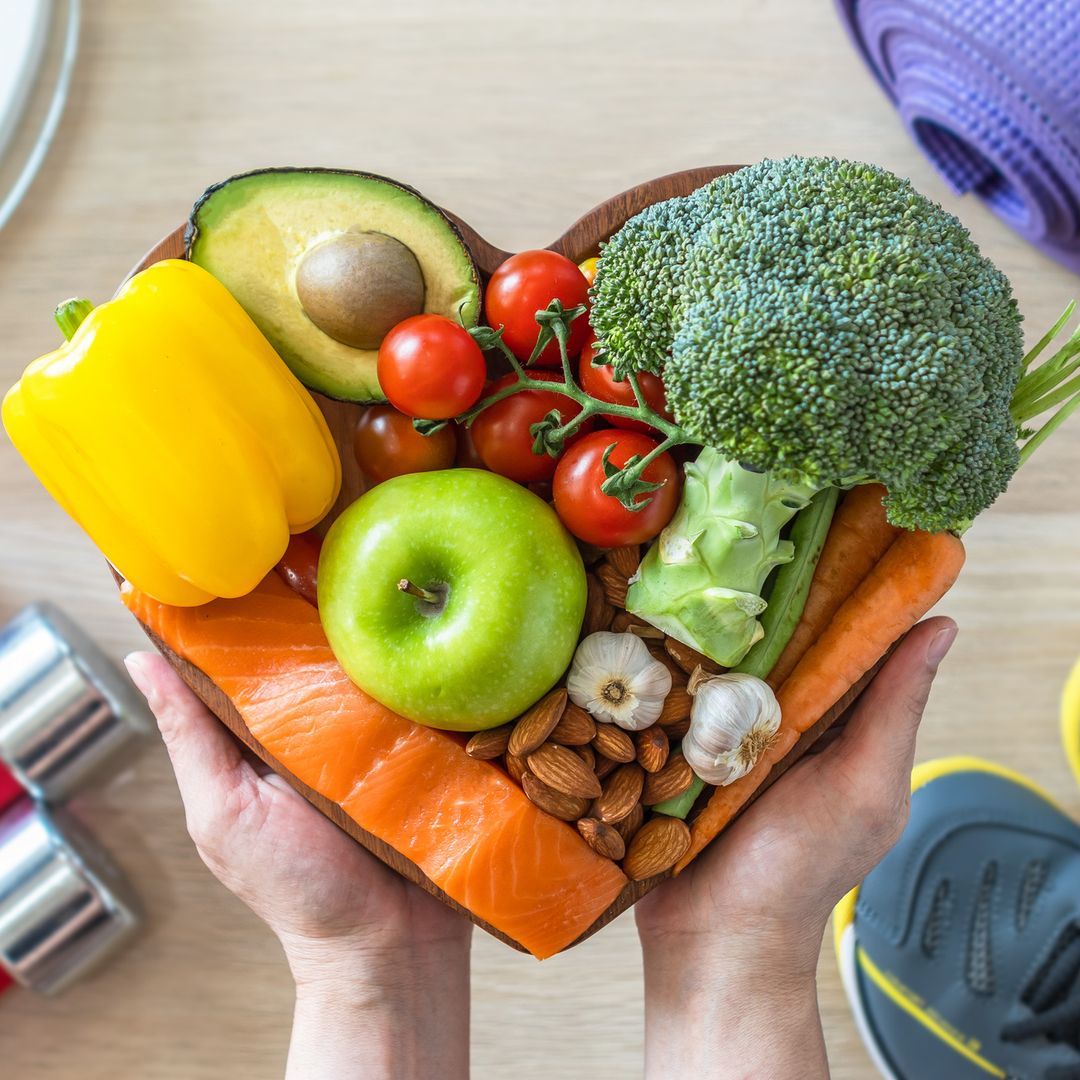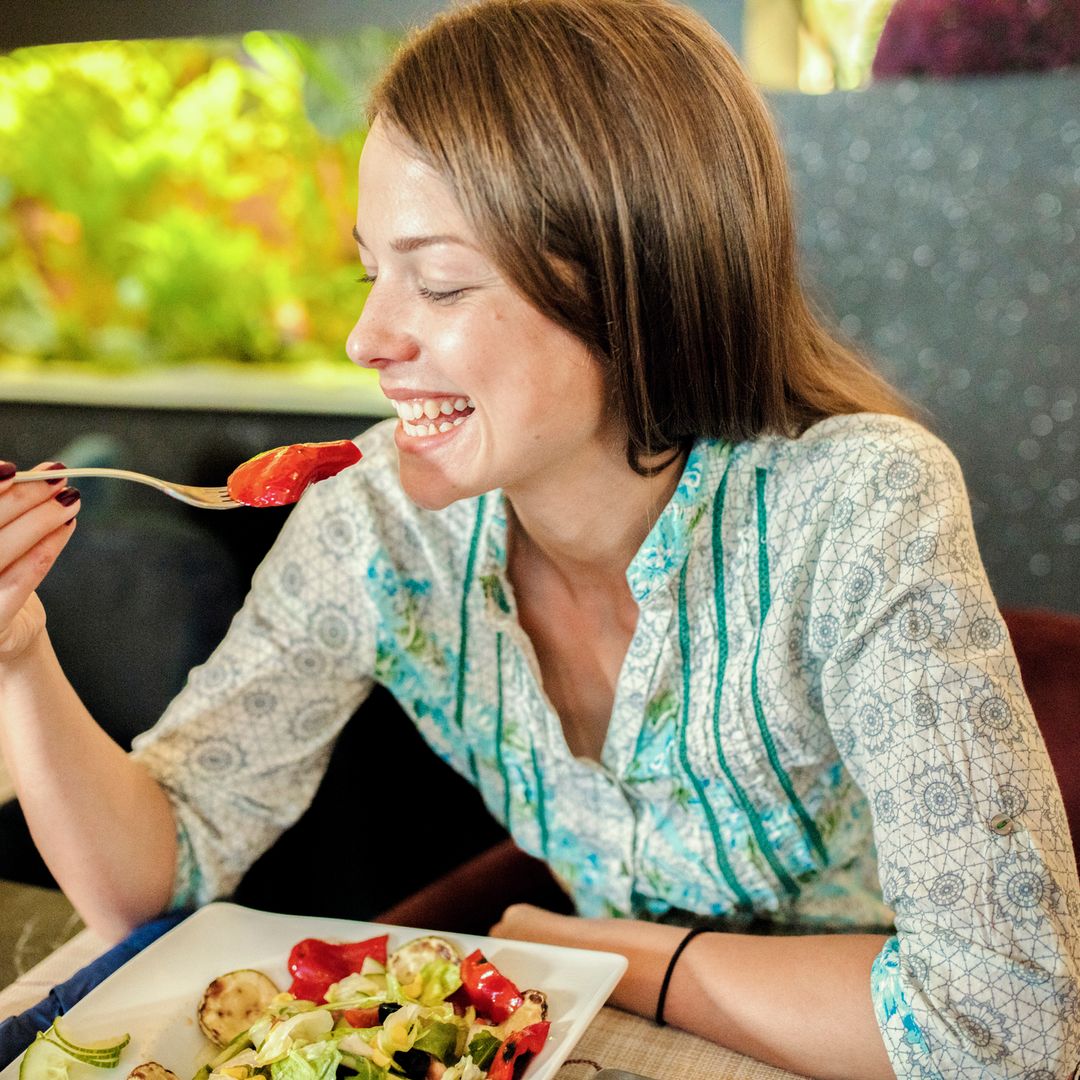Watch what you eat and the way you eat it! Many women feel their tummies becoming more bloated throughout the day. A few sensible changes to diet and eating habits can go a long way to help combat the problem. Aside from the obvious avoiding of too many stodgy and highly processed foods, there are things you can do to help.
Here are some suggestions:
- Take time to eat. Why? Digestion starts in the mouth. Chewing produces enzymes and breaks down food, which helps the digestive system.
- Eat small portions and take small mouthfuls. Are you eating nervously, in a hurry, or with large mouthfuls? This can mean that you also ingest a lot of unnecessary air. Eat five smaller meals. Instead of two or three big meals a day, try spreading the same quantity of food over more meals.
- Fizzy drinks can add to the problem. If you can’t resist them, try giving them a little stir with a spoon or a straw to release some of the gas before drinking.
- Cut greens finely and chew really well. Lettuce, although it’s a great food, is rich in cellulose – a substance which is hard for the digestive system to dissolve, and which can lead to increased bloating. The same applies to other greens like cabbage and cauliflower.
- Take care with pulses, beans, chickpeas, lentils, etc. They can provoke the production of gas in the stomach due to their trisaccharide content. They’re really good for you though! So, if you’re cooking them yourself, soak them for 24 hours to rehydrate and cook long and slow, to make them easier for the body to digest.
- Frozen veggies retain vitamins well so stock up that freezer! Interestingly, it’s thought that frozen vegetables are more easily digested than raw. This is because the cellular structure is broken down when water inside the vegetables freezes, making them easier for the digestive system to process.
